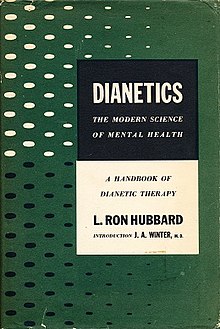Facts About Dianetics Uncovered
Facts About Dianetics Uncovered
Blog Article
The 7-Minute Rule for Dianetics
Table of ContentsThe Single Strategy To Use For DianeticsThe Greatest Guide To DianeticsThe Buzz on DianeticsSee This Report about Dianetics
I could not ever before not intend to obtain anything that comes to mind for you- if it was otherwise, I wouldn't be resting here with you, doing this. I not just could never have an issue, or otherwise want to listen to something that comes to mind for you, but I'm entirely anxious to understand every idea, every idea, every photo or sensation that emerges or materializes for you- do not ever before believe or else, and if somehow you do, please simply let me understand! In some cases, you might have a thought, and picture, concept or incident turn up that does not seem to answer the question, or connect to it, however nevertheless, constantly do inform me regarding it, and as we continue, the significance will certainly arise for you.This is integral in the basis of processing, and the topic of this conversation: the basic functions of the therapist and the client: The basic duty of the therapist is, in contrast to "typical training", not to control, which means to impose and/or prevent, but to instead work from the basis of EMPOWERING THE CUSTOMER.

3 Easy Facts About Dianetics Described
John Mcmasters shared this basic fact wonderfully well in among his talks on Power processing, in which he clarifies how he was asked what this "unique propensity" was that he had for giving such excellent sessions; he had to think of that for a minute, and detected that it was what he had not been doing, along with what he was doing: he had not been evaluating, judging, computing, or in fact, producing any thoughts, not to mention spoken expressions, after providing the command and while waiting on the computer to finish their solution to their complete satisfaction; he was, just and just, being present with the computer, and totally interested.
The role of the therapist, demonstrated; that was his "special flair". I have had my own experience which instructed me this well, extremely early in the game. In 1982, having actually lately finished my training and internship on New Age Dianetics, I was running this on a COMPUTER, and there was a factor in the session where (being a little bit wet behind the ears not their website yet having several hours under my belt as a specialist auditor) the PC my explanation appeared to be "taking too long" to reveal anything verbally after I provided him a command.
This key became one of the most useful contribution that John ever made to the topic of treatment or auditing (Dianetics). In my humble opinion, it is the greatest payment that any individual has ever before made to these subjectsthe application is completely non-judgemental, non-evaluative, and devoid of any kind of tip, recommendations or opinion.no preconceived agenda for individuals, or 'degrees' that they must do
In Idenics, the only resource of details about a client is the specific customer. In Scientology we prided ourselves on not evaluating for individuals. All that truly indicated was that the auditor did not VERBALLY examine for the PC in session. The registrars and principles officers examined for the computer.
4 Easy Facts About Dianetics Described

Any person that had ever before seen John audit might not assist yet notice an unique quality in his bookkeeping."The client's basic duty is to be there with the function of relocating in the direction of their spiritual objectives, and to freely and fully reveal and experience whatever materializes for them in answering the questions and carrying out the guidelines in the handling.
This is something to process as look these up needed. Likewise, people often have prior experience and/or brainwashing in auditing/processing which, in some means, and to some degrees, actually deceives them into attitudes, ideas and habits patterns that avoid the complete understanding of these duties, and so they will certainly have a tendency to prevent the expressing of what comes to mind, as in the examples given over - Dianetics. * The first, and maybe foremost instances of mis-indoctrination causing less than completely smooth and efficient sessions, can be discovered in specific facets of the training regimens, or "TR's":"TR's" are often an individual's first, or a minimum of early, experience in Scientology, and while I will certainly go on to describe what I view as the problems in idea and practice, however, have a tendency to be substantially therapeutic, done as they are provided (Hubbard firmly insists that "TR's are not processing, they are training", but factually, they are both processing AND training)
There is no "flunking", and no rejection of the fact of this being processing. The focus, as it must be, is on experiencing the other person's existence.
Some Known Questions About Dianetics.

Report this page